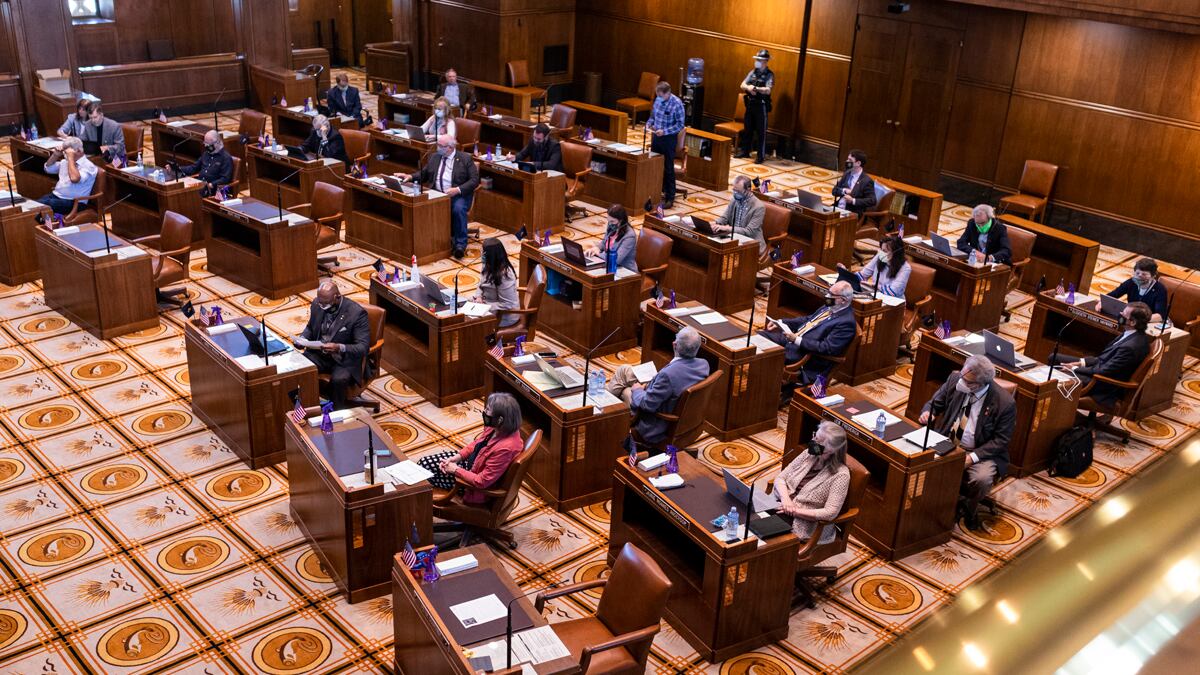On Aug. 10, in a whirlwind one-day special session, Oregon lawmakers balanced the state budget, tweaked the unemployment system, and provided much-needed funding for drinking water infrastructure in Salem and on the Warm Springs Reservation.
What they didn't do was resolve a pesky problem that has burned around the edges of the Capitol since 2017 like the embers of a campfire that just can't be extinguished. Jessica Knieling, manager of employee services for the Legislature, says the issue will probably cost about three-quarters of a million dollars annually to fix, a sliver of the money lawmakers handled this week.
The issue: In 2017, the Legislature passed a pay equity law intended to make sure women and people of color get paid as much as white men. Two years later, lawmakers crafted rules on how to fit the Legislature's 800 or so staff members into the new law.
Those rules pleased almost no one. A new compensation study produced for the Legislature last week, for example, showed that as many of half of the building's employees were underpaid. If lawmakers were to adopt the adjustments the consultant suggested, senior aides could see their salaries rise from $51,516 to $72,058.
But fixing the inequity has complications. Hundreds of staffers only work when the Legislature meets, many lawmakers employ family members as legislative staff, and all 90 members are accustomed to making their own decisions how much to pay staff.
Staffers are unhappy. Some have sued over perceived inequities in pay; many are due retroactive payments going back two years. A group of staffers submitted written testimony for an Aug. 6 meeting of the Legislative Administration Committee, calling the current system "untenable and unsustainable."
And although lawmakers have dealt expeditiously with billion-dollar decisions related to COVID-19 in recent weeks and made major policy changes, they will not fix their staff's pay scale until after the November election.
One staff member, speaking on background, suggests the delay is political: The optics of lawmakers raising staff pay while cutting the state's budget amid a pandemic-induced recession could be disastrous.
Danny Moran, a spokesman for House Speaker Tina Kotek (D-Portland), says it's a matter of gathering the necessary information to make sure a new classification and compensation system can go into effect.
"Employees still need to update their information," Moran says, "so we won't have the data to make a cost estimate until later this year, for a planned implementation by February 2021."

